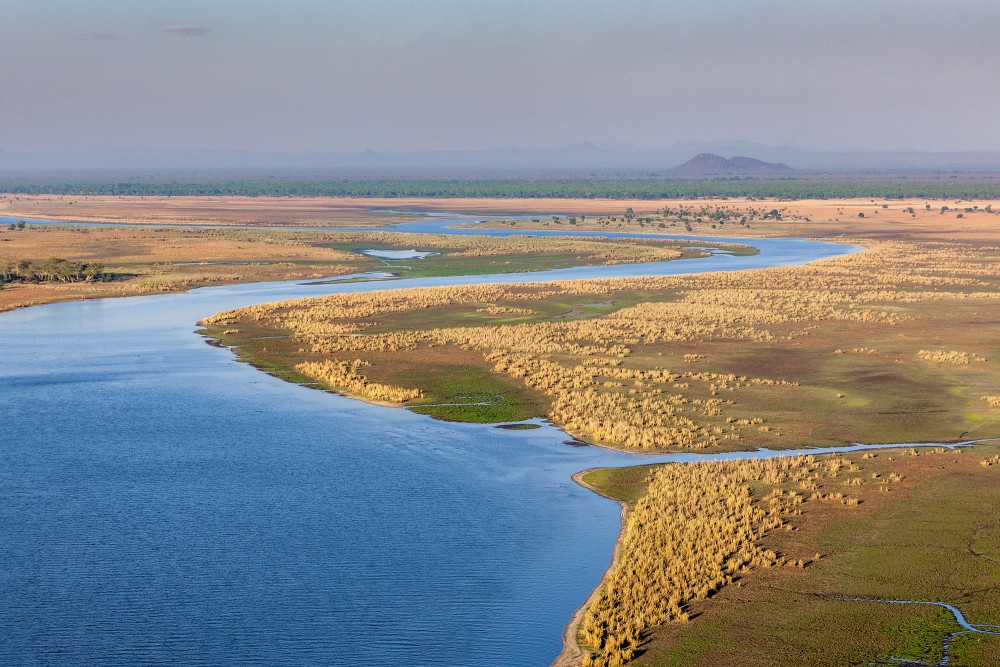Arrests Made Following Rhino Poaching Incident in Liwonde National Park
African Parks regrets to announce that on the 13th of July 2017 an adult female black rhino was poached in Liwonde National Park. On discovering the carcass, a joint operation was immediately undertaken by African Parks, the Department of National Parks and Wildlife’s (DNPW) Wildlife Crime Investigations Unit and the Central Investigations Unit of the Malawi Police, with support from the Lilongwe Wildlife Trust and IFAW, leading to the successful arrests of the suspects involved.
 © Mike Dexter
© Mike Dexter The poached rhino was located by members of the park’s dedicated rhino monitoring team that are employed to constantly track the rhino population in Liwonde. Upon receiving the notification of the incident from the team, park management immediately initiated a follow-up to recover the horns which had been removed from the carcass. Following initial leads, a helicopter was dispatched with a ranger team, and with information provided from the park’s intelligence unit they located the horns at a shop near the town of Ntaja to the east of Liwonde National Park. The team secured the scene, and the Malawi Police from Ntaja were called in to arrange a search warrant for the abandoned shop. The operation uncovered the set of horns in a deep freezer and the identity of the shop owner was confirmed, initiating a search for the suspect and further investigations.
In the ensuing operation the shop owner, a member of the group who poached the rhino, and several other accomplices were arrested. The rifle used in the incident and 25 rounds of ammunition were also recovered. Investigations are continuing and several other suspects are expected to be arrested in connection with the case. The suspects arrested thus far have been charged in terms of Malawi’s Wildlife Act, which was recently revised and substantially strengthened. It is anticipated that the Judiciary will respond in support of the Malawi Government’s firm position on wildlife crime. The roll-out of the court case will be followed with interest through the Lilongwe Wildlife Trust’s Judicial Advocacy and Enforcement Programme.
This was a joint operation between African Parks, the Department of National Parks and Wildlife’s Wildlife Crime Investigations Unit and the Central Investigations Unit of the Malawi Police. Support for the investigations was provided by African Parks and Lilongwe Wildlife Trust. The rapid response is testament to the effectiveness of Liwonde National Park’s law enforcement team which has improved dramatically over the past two years since African Parks assumed its management in 2015 in partnership with the DNPW, with significant investments in training, equipment and high level technology; all aimed at bringing an end to wildlife crime in the area.
“Collaborations with all of the role players involved enabled this success, and criminals targeting wildlife should be aware of the strength of the force which they are now engaging with.” said Liwonde National Park Manager Craig Reid.
Black Rhino are a critically endangered species and the loss of this female in prime breeding condition is a blow to Malawi’s conservation efforts.
About African Parks: African Parks is a non-profit conservation organisation that takes on the complete responsibility for the rehabilitation and long-term management of national parks in partnership with governments and local communities. With the largest counter-poaching force and the most amount of area under protection for any one NGO in Africa, African Parks manages 11 national parks and protected areas in eight countries covering six and a half million hectares in Malawi, Benin, Central African Republic, Chad, the Democratic Republic of Congo, the Republic of Congo, Rwanda and Zambia. Visit www.africanparks.org to learn more. Follow us on Twitter, Instagram and Facebook
About Malawian Department of National Parks and Wildlife (DNPW): The Malawian Department of National Parks and Wildlife entered into a partnership agreement with African Parks to restore and manage Majete Wildlife Reserve in 2003, and concluded a subsequent agreement in 2015 for Liwonde National Park and Nkhotakota Wildlife Reserve.